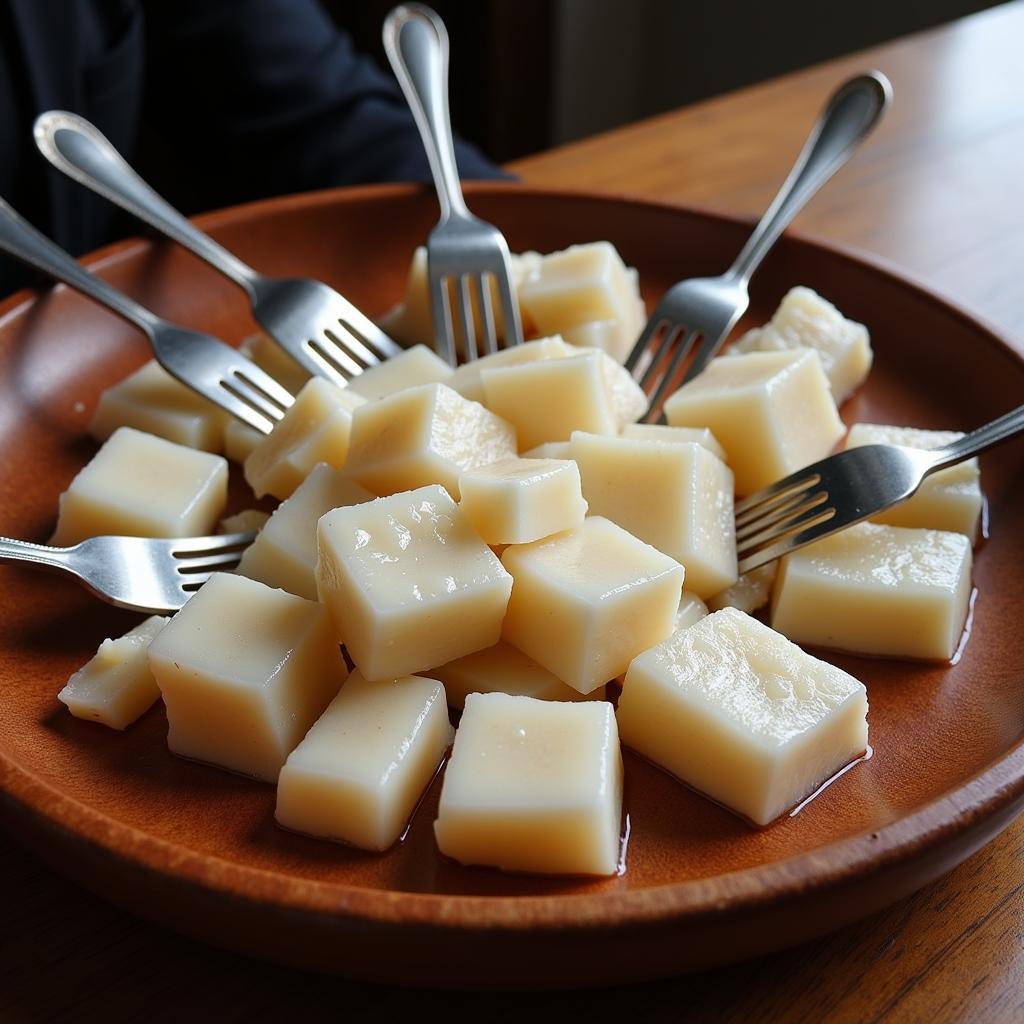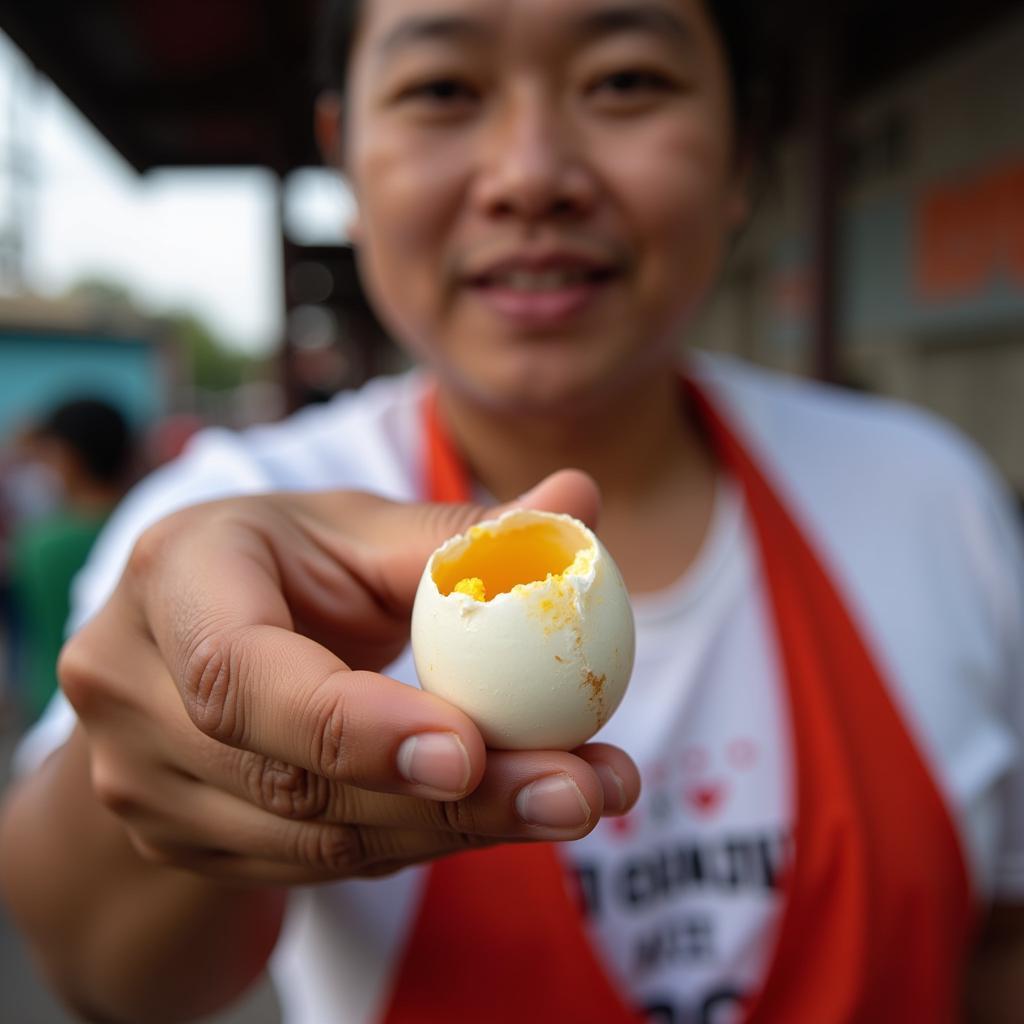Disturbingly Delicious Foods. It’s a curious oxymoron, isn’t it? How can something that disturbs us also tantalize our taste buds? This exploration delves into the fascinating world of foods that initially repulse, yet ultimately captivate, proving that sometimes, the most unexpected flavors offer the most rewarding culinary experiences.
When “Yuck” Turns into “Yum”: Exploring Disturbingly Delicious Foods
From century-old eggs to fermented shark, the world is full of dishes that challenge our preconceived notions of what’s edible. These disturbingly delicious foods often boast unique textures, pungent aromas, and flavors that are anything but ordinary. But why are we drawn to them? Is it the thrill of the unusual, the desire to push our culinary boundaries, or something more primal?
The Psychology of Disturbingly Delicious Foods
One theory suggests that our fascination with these foods stems from a desire to conquer fear. By consuming something that initially repulses us, we assert control and expand our comfort zones. It’s a small act of rebellion against the mundane, a way to inject a little excitement into our everyday lives. There’s also the element of social bonding. Sharing these unusual culinary experiences can create a sense of camaraderie and shared adventure. Think about it: haven’t you bonded with someone over a particularly strange food experience?
 Fermented Shark in Iceland
Fermented Shark in Iceland
A Global Tour of Disturbingly Delicious Delicacies
Let’s embark on a culinary journey to explore some of the most intriguing examples of disturbingly delicious foods around the globe:
- Balut (Philippines): A developing duck embryo boiled and eaten in the shell. Its unique blend of savory broth, tender meat, and slightly crunchy bones creates an unexpectedly complex flavor profile.
- Casu Marzu (Italy): A sheep milk cheese that contains live insect larvae. While the thought of maggots wriggling in your cheese might be off-putting, the cheese itself is said to have a rich, sharp, and slightly spicy flavor.
- Kiviak (Greenland): A traditional Inuit dish of fermented seabirds stuffed inside a seal carcass. The fermentation process results in a pungent aroma and a flavor that some describe as intensely gamey.
Are Disturbingly Delicious Foods Safe?
The safety of these foods depends largely on proper preparation and handling. While some, like Balut, are generally considered safe, others, like Casu Marzu, carry potential health risks if not prepared correctly. It’s crucial to research and understand the potential risks before trying any unusual or unfamiliar food.
“When exploring these unique culinary adventures, it’s essential to prioritize safety,” advises Dr. Emily Carter, a food anthropologist. “Understanding the cultural context and traditional preparation methods is crucial for minimizing potential risks.”
Expanding Your Culinary Horizons with Disturbingly Delicious Foods
Stepping outside our culinary comfort zones can be incredibly rewarding. Disturbingly delicious foods offer a chance to explore new flavors, connect with different cultures, and challenge our preconceived notions about what constitutes good food.
 Balut in the Philippines
Balut in the Philippines
So, the next time you’re feeling adventurous, why not try something a little…disturbing? You might just discover your new favorite dish. Ultimately, the world of disturbingly delicious foods reminds us that taste is subjective, and sometimes, the most unexpected flavors can be the most memorable.
Conclusion
Disturbingly delicious foods offer a unique culinary adventure, challenging our palates and expanding our understanding of global cuisine. Whether you’re a seasoned foodie or a curious beginner, exploring these unusual delicacies can be a rewarding experience. So, embrace the unusual, and discover the deliciousness that lies beyond the disturbing.
FAQ
- What are some other examples of disturbingly delicious foods?
- Where can I try these foods safely?
- What are the cultural origins of these dishes?
- Are there any health benefits to eating these foods?
- What should I do if I have a bad reaction to a new food?
- How can I find reliable information about food safety?
- Are there any ethical considerations surrounding the consumption of some of these dishes?
Need More Help?
For further information or assistance, don’t hesitate to contact us! Call us at 02437655121, email us at minacones@gmail.com, or visit us at 3PGH+8R9, ĐT70A, thôn Trung, Bắc Từ Liêm, Hà Nội, Việt Nam. Our customer service team is available 24/7.
Check out our other articles on [link to another relevant article] and [link to another relevant article] for more culinary explorations!